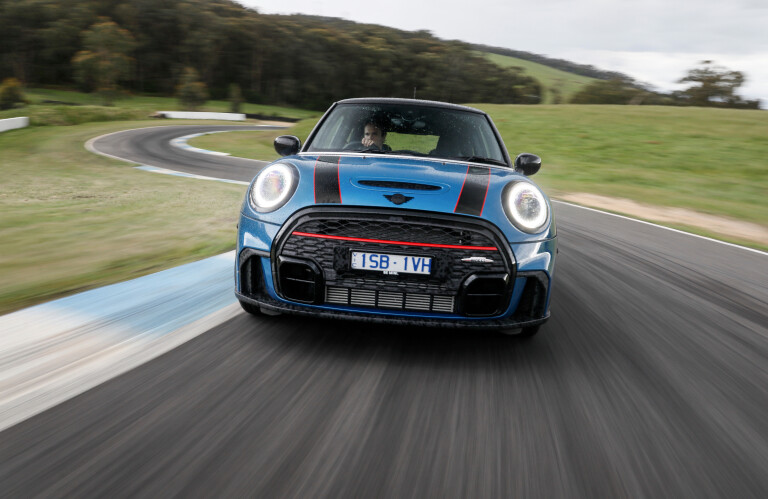
Things we like
- Torquey engine
- Strong brakes
- Chuckable size
Not so much
- Inert chassis
- Should be quicker
- Expensive
The name John Cooper is synonymous with competition. As a tuning guru in the 1960s, his work helped the Mini succeed on the world’s racetracks and rally stages, so it only seemed right that we examine whether the latest Mini Cooper JCW lives up to the legend.
It’s been around a few years now, the current generation of JCW, and while the interior and technology has had a number of updates, the mechanical specification has remained the same.
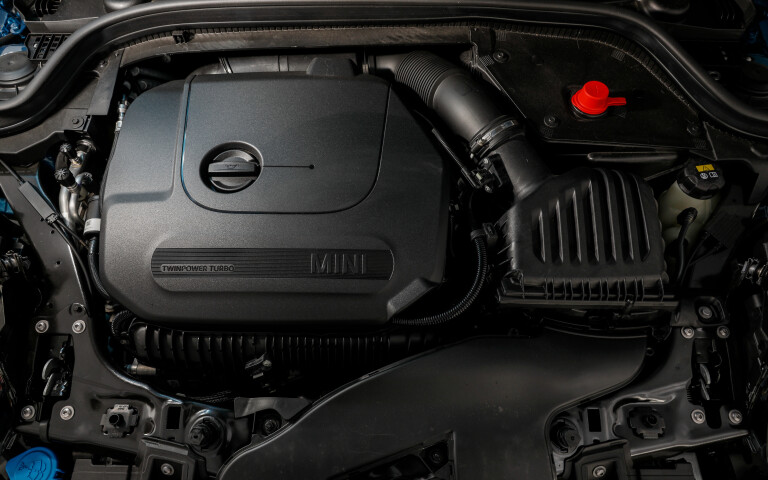
Not that there’s much to complain about with a 170kW/320Nm 2.0-litre turbocharged four-cylinder in a car that weighs just 1220kg when, as here, fitted with the optional eight-speed automatic gearbox. Classic big-engine, small-car philosophy.
It backs this up with whopper front stoppers – 335mm discs with four-piston calipers – 18-inch wheels with Pirelli rubber and your typical strut-front/multi-link rear suspension set-up.
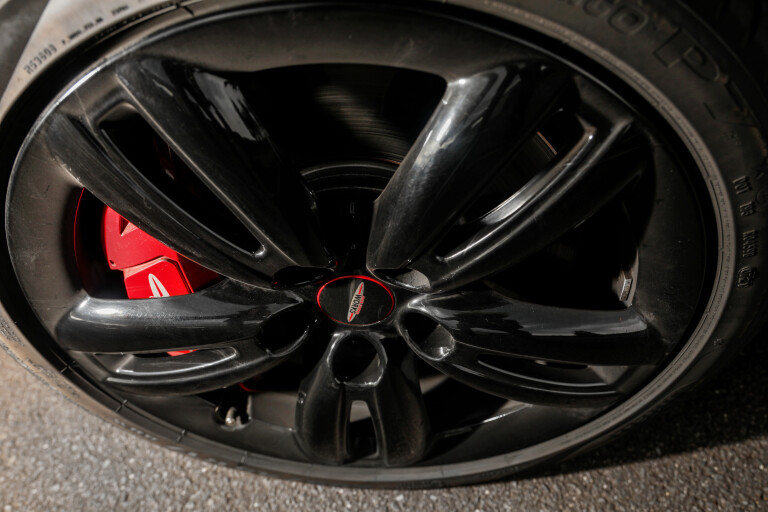
Certainly, when it comes to stopping and going, the JCW does the business. The engine produces peak torque from just 1250rpm and that spread continues all the way to 6000rpm.
Combined with eight close ratios there is tremendous flexibility and while the outright punch isn’t outrageous – MINI claims 6.1sec from 0-100km/h – it still feels quick enough.
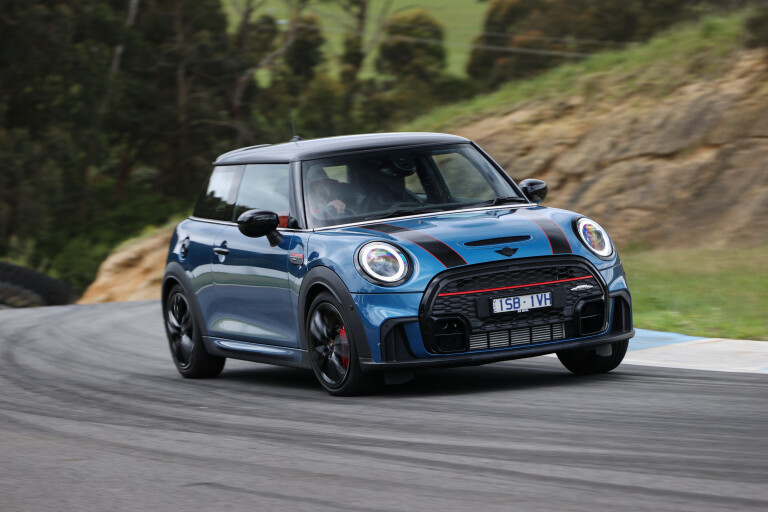
There’s no limited-slip diff but traction is pretty good, especially as the engine’s breadth makes third an option on corner exit. Conversely, jumping on the brake pedal almost stands the JCW on its nose, allowing for very late braking.
Its size pays dividends around the tight Bryant Park circuit and while the steering wheel rim is typically BMW fat, its action is responsive and accurate. Unfortunately, it doesn’t really come together into a cohesive whole.
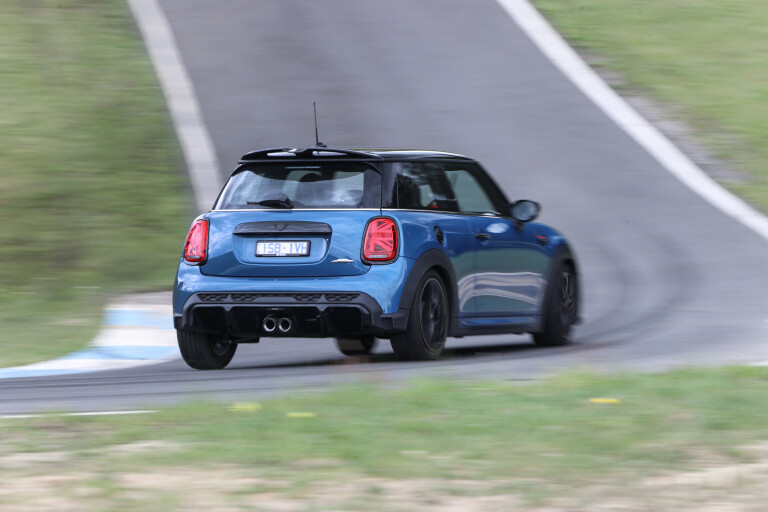
The chassis lacks character or any sense of fun on track. All the constituent parts are there but when you turn into a corner the front end is the fuse and there isn’t really anything you can do about it.
Previous Minis had a feisty, lively personality – almost to a fault at times – but they were always jinking and dancing around. This current JCW is much more serious, refusing to entertain the idea of rear-end involvement.
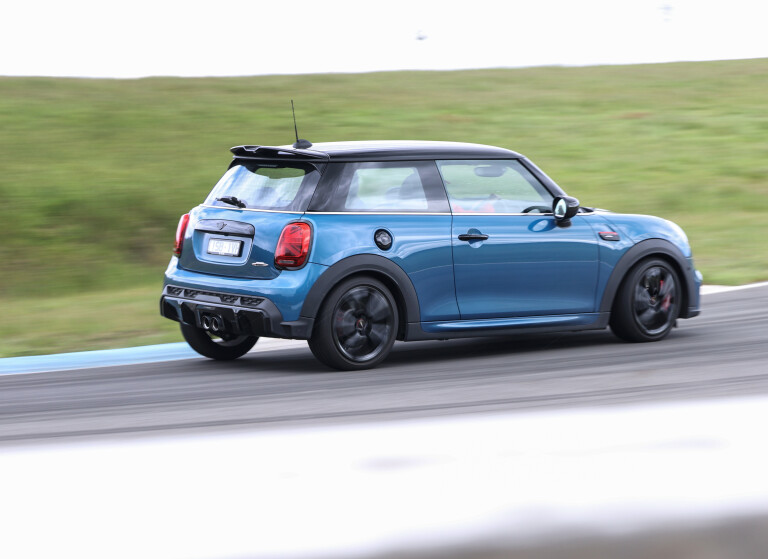
As a result, you drive the Mini from point to point and it’s stable and confidence-inspiring in the process, but it doesn’t give you any options and as a result, there’s no real reward or incentive to push harder.
Nor is it particularly quick. Compared to the Hyundai i30 N DCT, a car of very similar price and identical power-to-weight ratio, the Cooper JCW trailed by more than three seconds around the short Bryant Park lap.

It’s not bad by any means, with a strong engine, powerful brakes and decent grip, but it doesn’t have the playfulness of its predecessors. It needs more John Cooper Works magic.
Leaderboard
| RTR Ford Mustang: | 1:06.0sec |
|---|---|
| Audi RS5 Coupe: | 1:06.7sec |
| Lexus RC F Track Edition: | 1:06.8sec |
| Hyundai i30 N DCT | 1:08.7sec |
| MINI Cooper JCW: | 1:11.8sec |
Specifications
| Body: | 3-door, 4-seat hatch |
|---|---|
| Drive: | front-wheel |
| Engine: | 1998cc inline-4cyl, DOHC, 16v, turbo |
| Bore/stroke: | 82.0 x 94.6mm |
| Compression: | 10.2:1 |
| Power: | 170kW @ 5200-6000rpm |
| Torque: | 320Nm @ 1250-4800rpm |
| Weight: | 1220kg |
| Power/weight: | 139kW/tonne |
| Transmission: | 8-speed automatic |
| Suspension: | struts, coil springs, anti-roll bar (f); multi-links, coil springs, anti-roll bar (r) |
| L/W/H: | 3872/1727/1414mm |
| Wheelbase: | 2495mm |
| Tracks: | 1485mm (f/r) |
| Steering: | electrically assisted rack-and-pinion |
| Brakes: | 335mm ventilated discs, 4-piston calipers (f); 300mm solid discs, single-piston calipers (r) |
| Wheels: | 18 x 7.0-inch (f/r) |
| Tyres: | 205/40 R18 (f/r); Pirelli P7 Cinturato |
| Price: | $54,850 + ORC |
Things we like
- Torquey engine
- Strong brakes
- Chuckable size
Not so much
- Inert chassis
- Should be quicker
- Expensive

COMMENTS